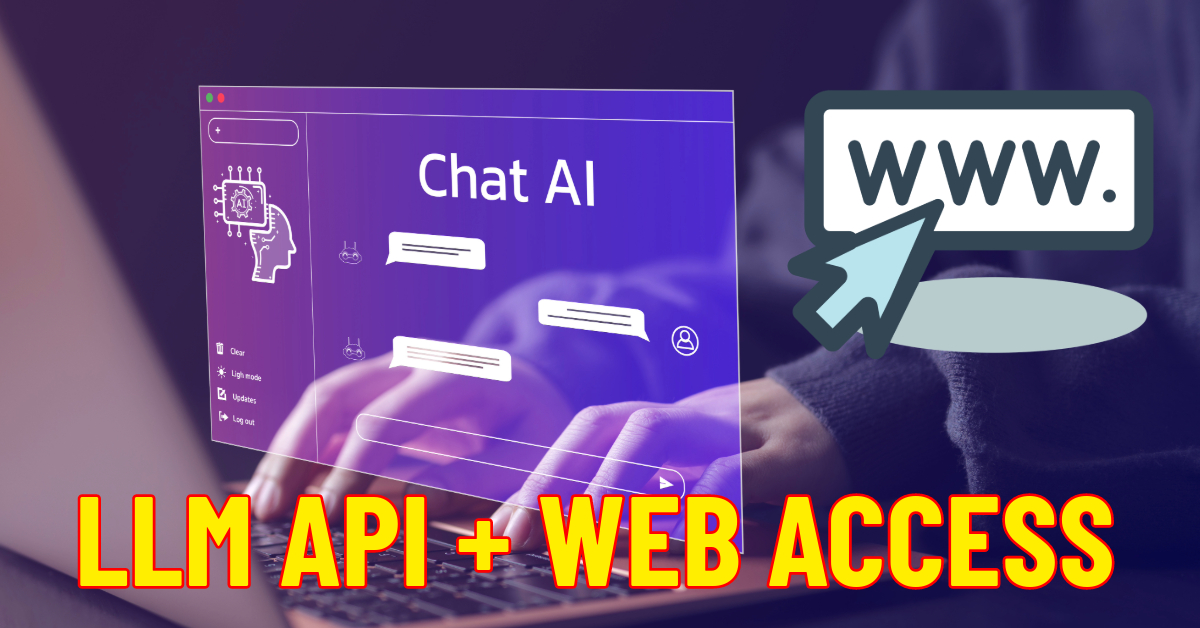3 LLM API's With Online Access

I've been fascinated by the rapid advancements in AI, and I've had the privilege of exploring various Large Language Model (LLM) APIs firsthand.
It's an exhilarating time to be part of this technological revolution, especially with the emergence of APIs that not only grant access to powerful language models but also seamlessly integrate online search capabilities.
This feature has been a game-changer for me, both as a developer and a writer, as it allows me to create more informed and factual content with ease.
Today, I'm excited to share my personal insights on three of the most impressive LLM APIs that I've had the opportunity to try out: Cohere, You.com API, and Perplexity API.
Cohere API
While Cohere API is primarily recognized for its text generation and understanding capabilities, its potential when combined with web data is vast.
By leveraging web scraping techniques or APIs that provide real-time data, applications powered by Cohere can become more dynamic and informed.
Advanced Integration for Real-Time Data:
- Automated Research Assistants: Imagine a tool that not only compiles research on a given topic but also ensures that all references and data are the most current by pulling information from scientific journals and databases in real time.
- Dynamic Content Creation: For content marketers, integrating Cohere with web data means being able to create articles or blog posts that reference the latest trends, statistics, and news, ensuring content is always relevant and engaging.
Technical Insight:
Developers can enhance Cohere's API by integrating it with Python libraries like Beautiful Soup or Scrapy for web scraping, allowing the model to process and generate content based on live web data.
You.com API
You.com API takes the integration with web data a step further by embedding web search directly into the AI's response generation process. This ensures that the AI's output is not only contextually rich but also grounded in factual, up-to-date information from across the web.
Direct Integration with Web Search:
- Instant Expertise Across Domains: Whether it's legal advice, medical information, or technological insights, You.com API can provide users with expert knowledge by pulling in the latest information from authoritative sources.
- Interactive Learning Platforms: Educational platforms can use You.com API to generate up-to-the-minute tutorials, explanations, and answers that incorporate the latest developments and discoveries in any given field.
Technical Insight:
The API's ability to refine search results based on parameters like country or safesearch settings allows for tailored, relevant, and appropriate content generation, catering to a global and diverse user base.
Perplexity API
Perplexity's API focus on generating precise and concise responses makes it an ideal candidate for applications that require not just accuracy but also the incorporation of timely information. When integrated with web-based data sources, Perplexity can provide insights and summaries that are both highly accurate and current.
Enhancing Applications with Timely Data:
- Financial Analysis Tools: By pulling in the latest stock market data, economic reports, and financial news, tools powered by Perplexity can provide users with detailed and up-to-date market analyses and predictions.
- Health Monitoring Systems: Integrating real-time health data and research allows for the creation of monitoring systems that can provide users with the latest health advisories, research findings, and treatment options.
Technical Insight:
Integrating Perplexity with APIs from financial data providers or health information databases can significantly enhance the model's utility, making it a powerful tool for applications requiring high precision and up-to-date information.
My Closing Thoughts
It's amazing to see how this integration can significantly enhance the accuracy and relevance of AI-generated content by grounding it in real-time data.
However, it's important to remember that these systems, no matter how advanced, are not infallible. The accuracy of the content, while improved, is not guaranteed to be 100% perfect. This is primarily due to the dynamic nature of the web, where information can vary in reliability, and the interpretation of data by AI can still lead to inaccuracies.
I've seen this firsthand in my own work. I once used an AI-powered tool to generate a financial analysis report, and while the information was generally accurate, there were a few minor details that were slightly off. It was a good reminder that even with the power of web-enhanced AI, it's always important to double-check the content against authoritative sources, especially in critical contexts like medical advice, legal information, or financial analysis.
That said, the comparative accuracy of AI outputs that are enhanced with real-time web data is generally much better than those generated solely from the LLM's pre-existing knowledge base. By having access to the latest information, these AI models can incorporate the most up-to-date studies, news articles, and data into their responses, providing a level of timeliness and relevance that pure AI output simply can't match.
Of course, this superior accuracy and relevance come at a cost. These web-enhanced AI services are typically more expensive than generating content using only the LLM's stock knowledge. The complex integration of web search capabilities, the API calls required to access real-time data, and the processing power needed to analyze and incorporate that information all contribute to the higher price tag.
But for many applications, the value added by this web-enhanced AI is well worth the cost. When accuracy and currentness of information are critical, the investment in these more advanced AI tools can pay off in spades.

